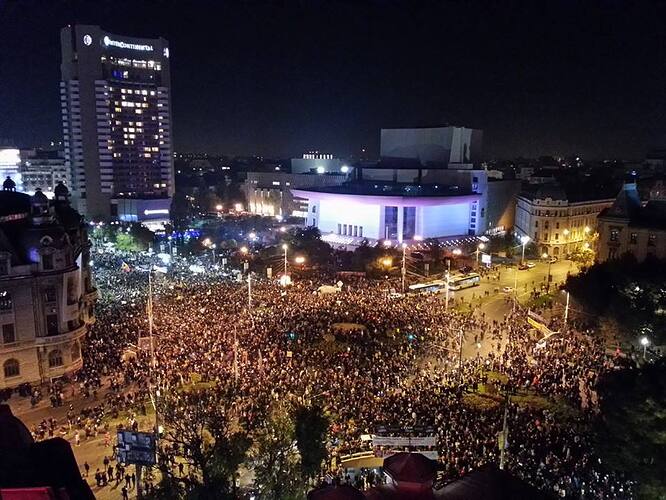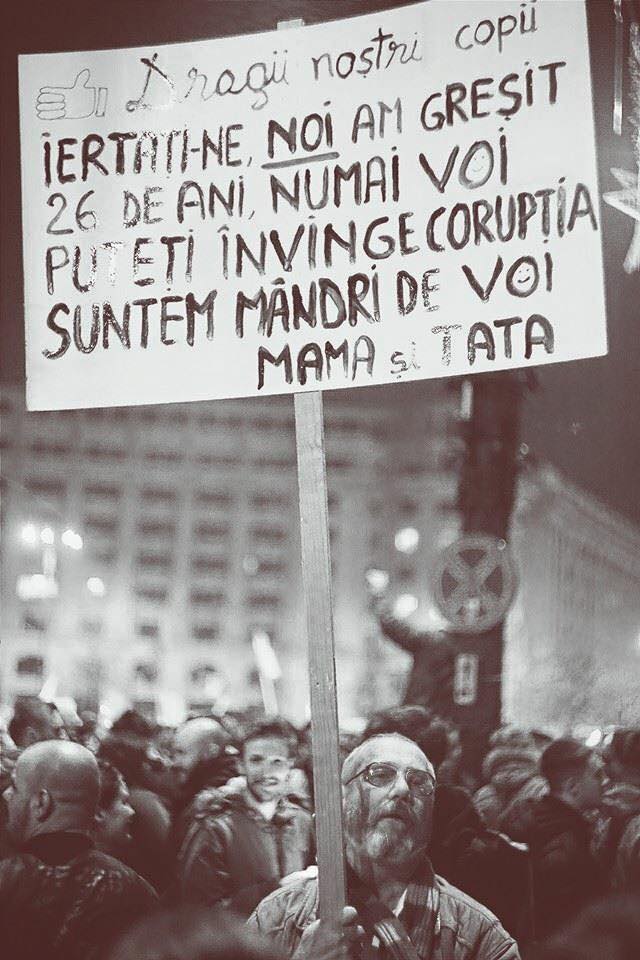Whether here or not, you probably have seen the recent street outbursts following the tragedy of over 30 45 people dead and a hundred awfully injured in the fire of club Colectiv in Bucharest. There are no words to describe the kind of emotional response and solidarity shown these days by everyone. No matter the many versions of who bears the responsibility for losing such talent and youth, the place, like many of our generation’s underground cultural spaces, was really ill equipped to deal with any incidents and had been nonetheless approved for business (only one exit, no fire extinguishers, and highly flammable materials covering walls). After shock and excruciating pain, we’re in an awakening of sorts, since this was a tipping point after a previous accident where politics contributed to loss of human lives. For the last days we’ve been gathering, marching and demanding resignation of public officials and change of government, political class, system change, #changeeverything basically.
Our PM resigned yesterday, as well as the mayor of the sector (Bucharest districts are called “sectors”) where the club was based. Clubs and cultural venues everywhere are closing for fear, or being shut down as we speak. We’ve moved from a sense of collective guilt in the first days to cashing in on years of crappy politics. 70K people yesterday on the streets they say, craziest mobilisation in decades.
But what does the future hold and can we do something about it? Well, I don’t know about others, but I for one try to…
…navigate the noise. The streets are full of infiltrated agitators, competing political groups (even new ones or youth wings of current ones) trying to push their own agenda to cover the vacuum, and of course stupid radicalism spicing things up.
…keep an eye on where alternatives can come from. Some civil society groups have sent in list of demands (technocratic government, leftist policies etc) while others are more laid back or radical. The street movement is said to be leaderless and powered by the facebook generation, asking at a minimum to stop corruption and strip politicians of their privileges. There is a discussion group called Changing Romania - list of nominations with real time name dropping of who are those who should run the country (9000 members in less than 48hrs). Reading its live feed is somewhat painful, as you can see people trying to self-organise massively with no plan or rules whatsoever, and most of those proposed have no political competences, for good or bad.
Some elite groups that I know of are sitting on the sidelines, non-committal in so far as building a new political movement is concerned. They seem to know that whoever speaks first is discredited along the lines of “only he who is not interested in governing should govern”. Maybe there’s not enough will, capacity, and too much realism about all that can go wrong.
Then there is you, me and everyone else who is not too young or naive to eat crap, not too old or cynical to stay home, but clearly part of a generation who cares enough to be willing to go the extra mile and back a political alternative if needed. My friend Zoli says it well “If people who protest do not get involved in politics, in 2 years we will protest again against the Government and the PM, which will be formed of current Opposition. The establishment needs to be changed, not the government.”
…have patience. From where I’m standing, there is a pretty sophisticated understanding of the opportunities and odds among the crowds, but navigating this level of complexity takes time. Individually, we win when voting with our feet. Collectively, we can fail or we can be part of an incremental change.
P.S. If you’re going to #Anonymous #MMM2015 march tonight in your city, stay safe. Waving from Bucharest!
Photo above: via Rezistenta Urbana on facebook.


